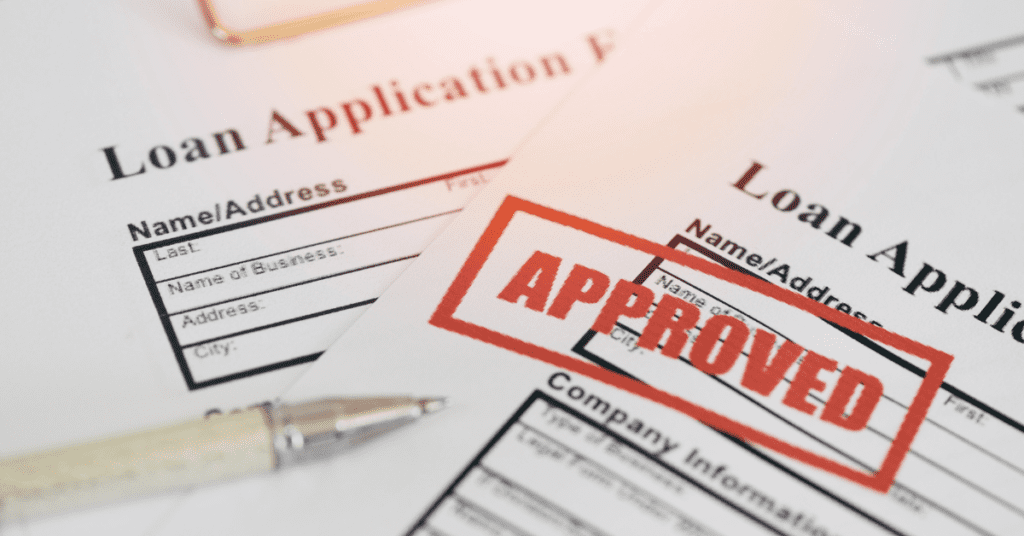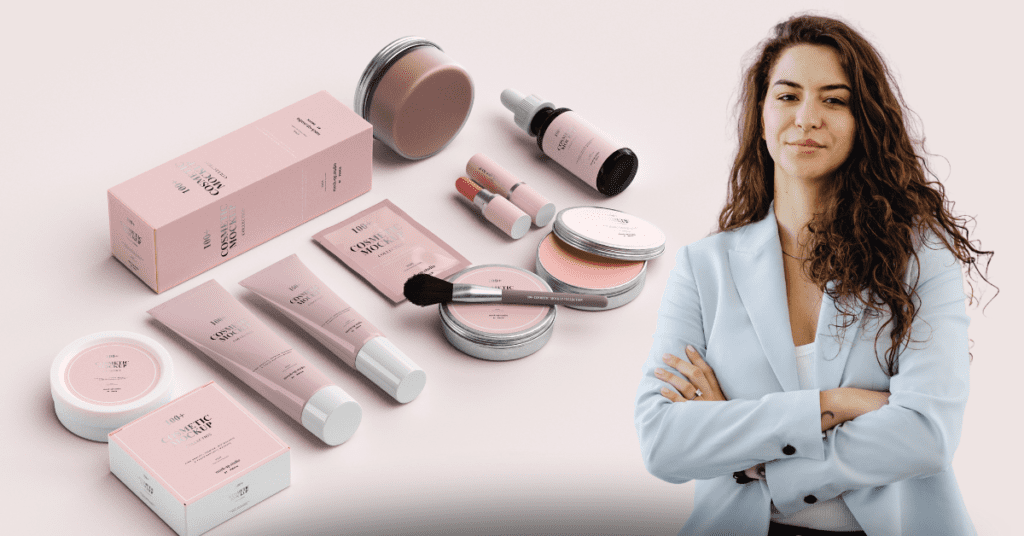The skincare industry in the USA is not just about beauty; it’s a burgeoning market with immense potential for entrepreneurs. For instance, consider the success story of ‘Glow Naturals’, a startup that began with a home-based lab and grew into a multi-million dollar business within five years. Such success stories exemplify why adequate funding, particularly through startup loans, is crucial. Whether you’re starting with a modest $10,000 for a home-based operation or aiming for a $200,000 launch for a more extensive setup, understanding and securing the right financial support is key.
However, turning a skincare business dream into reality requires more than just a groundbreaking idea or a deep passion for beauty and wellness; it demands substantial financial backing. Whether it’s sourcing high-quality ingredients, investing in safe and effective production methods, or navigating the intricate pathways of marketing and distribution, the initial stages of launching a skincare brand can be capital-intensive.

This is where startup loans come into play. They serve as a lifeline for budding entrepreneurs, offering the much-needed financial support to kickstart their venture. But navigating the world of startup financing is no small feat, especially in a sector as competitive and dynamic as skincare. With various funding options available, each with its unique features and requirements, making the right choice can be overwhelming.
In this comprehensive guide, we’ll delve into the essentials of securing startup loans for your skincare business in the USA. From understanding your capital needs to exploring the various loan options and navigating the application process, we’ll equip you with the knowledge you need to make informed financial decisions. So, whether you’re planning to create bespoke skincare products from your home or aiming to launch a full-scale production line, this blog is your starting point towards realizing your skincare business aspirations.
1: Understanding the Basics of Funding a Skincare Startup
1.1: Estimating Your Capital Needs
Before diving into the world of startup loans, it’s crucial to have a clear understanding of how much capital you’ll need to launch and sustain your skincare business. The amount varies significantly based on several factors, including the scale of your operation, the type of products you plan to offer, and your business model.
For a small-scale, home-based skincare line, initial costs may include raw materials, basic equipment, packaging, and branding. On the other hand, a larger operation might require additional investment in manufacturing facilities, labor, extensive marketing campaigns, and a more sophisticated distribution network.
- Small Scale: For a home-based business, initial investment might range from $5,000 to $15,000, covering basic ingredients, equipment, and initial marketing.
- Larger Scale: A full-scale operation might need between $100,000 and $500,000 for manufacturing facilities, hiring staff, comprehensive marketing campaigns, and robust distribution networks.
A realistic estimate of your startup costs will not only help you determine the size of the loan you require but also assist in effective financial planning. To get started, consider the following expenses:
- Raw Materials and Production Costs: Quality is key in skincare. Investing in premium ingredients and safe, effective production methods can set your brand apart.
- Packaging and Branding: Eye-catching, eco-friendly packaging and a strong brand identity are essential for capturing customer attention.
- Marketing and Advertising: Building a robust online presence and investing in advertising will be critical for brand visibility and customer acquisition.
- Operational Expenses: These include rental costs (if applicable), utilities, employee salaries, and other day-to-day expenses.
- Regulatory Compliance: Ensure your products meet all health and safety standards, which might involve some legal and compliance costs.
By carefully assessing these factors, you can arrive at an initial figure that reflects your funding requirements to start your skincare venture.
1.2: Exploring Funding Options
With a clear understanding of your capital needs, the next step is to explore the various funding options available to you. While personal savings might be the most straightforward source, it’s often not enough to cover all the startup expenses. This is where different types of loans come into the picture:
1.Traditional Business Loans: Offered by banks and credit unions, these loans are typically based on business plans and projected revenues. They may require collateral and have stringent qualification criteria.
Usually range from $50,000 to $500,000, ideal for large-scale ventures with detailed business plans.
2. Online Startup Business Loans: Digital lenders offer more flexible options, often with quicker application processes and less rigorous requirements than traditional banks.
Typically offer between $5,000 and $100,000, suitable for smaller businesses or those requiring quick funding.
3. Personal Loans for Business Use: If your business is still in the conceptual phase, a personal loan might be a feasible option. However, this could be risky as it intertwines your personal and business finances.
Each funding source has its pros and cons, and the right choice depends on your specific situation, including your credit history, the amount needed, and how quickly you need the funds.
In the following sections, we’ll delve deeper into these options, helping you navigate the complexities of startup loans and select the best fit for your skincare business dream.
2: Types of Startup Loans for Skincare Businesses

Navigating through the maze of loan options can be daunting. Understanding the specifics of each type can help you make an informed decision that aligns with your business needs and financial circumstances.
2.1: Business Loans for Startups
Business loans specifically tailored for startups are a popular choice for many entrepreneurs. These loans are designed to meet the unique challenges and uncertainties that new businesses face.
- Characteristics: Typically, these loans offer flexible repayment terms and may provide additional support in the form of business advice and networking opportunities.
- Eligibility Criteria: Lenders usually evaluate your business plan, market potential, and financial projections. A solid business plan that demonstrates viability and profitability is crucial.
- Pros and Cons: While they offer substantial financial support and resources, these loans often require detailed documentation and a strong credit history.
2.2: Personal Loans as a Business Funding Option
Using a personal loan to fund your skincare startup is another route. This option might be more accessible, especially if your business is still in the idea or early development stage.
- How It Works: Personal loans are based on your credit score and personal financial history, rather than your business’s credentials.
- Check your credit scores and obtain credit reports. Experian, TransUnion, Equifax
- Considerations: It’s important to remember that with a personal loan, you are personally liable for repayment, regardless of your business’s success or failure.
- Advantages: These loans are often quicker to obtain and require less paperwork than traditional business loans.
2.3: Online Startup Business Loans
In the digital age, online loans have emerged as a convenient and often more accessible alternative to traditional loans.
- Benefits: They usually have simpler application processes, faster approval times, and more lenient eligibility criteria.
- Variety: Online lenders offer a range of products, including lines of credit, short-term loans, and merchant cash advances.
- Key Points: While they provide quick access to funds, it’s essential to carefully review the interest rates and terms, as they can vary widely among online lenders.
Each of these loan types has its unique features, advantages, and limitations. The right choice depends on various factors, including the amount of capital needed, your credit history, the stage of your business, and how quickly you need the funding.

3: Tailoring Loan Choices to Your Business Needs
Choosing the right loan for your skincare startup involves matching your specific needs and circumstances with the right financial product. Here, we delve into how to select a loan based on the size of your business, your credit history, and other key factors.
3.1: Loans for Different Business Sizes
Your business’s scale significantly influences the type of loan that’s best suited for you. Here’s how to approach it based on your business size:
1.Small, Home-Based Operations: If you’re starting small, perhaps creating products at home, consider microloans or personal loans. These are easier to obtain and can adequately cover smaller-scale startup costs.
Microloans are Ideal for startups requiring less than $15,000. Example: ‘MicroFund USA’ offers microloans specifically for small home-based businesses.
2. Medium to Large Scale Ventures: For larger operations, requiring substantial capital, traditional business loans or online startup loans might be more appropriate. These can provide the higher amounts needed for extensive manufacturing and marketing.
3.2: Addressing Bad Credit Challenges
Bad credit can be a hurdle in securing a loan, but it’s not insurmountable. Here are some strategies:
- Improving Credit Scores: Before applying for a loan, take steps to improve your credit score, such as paying down existing debt and ensuring your credit report is accurate.
- Securing a Co-Signer: Having someone with a strong credit score co-sign your loan can increase your chances of approval.
- Alternative Lenders: Some lenders specialize in loans for individuals with bad credit. Be prepared for potentially higher interest rates as a trade-off for these more accessible loans.
3.3: Special Considerations for Skincare Businesses
Skincare businesses may have unique financial needs, such as funding for product testing and compliance with health regulations. It’s important to look for lenders who understand and cater to these industry-specific requirements.
- Industry-Focused Lenders: Some lenders specialize in funding businesses in the health and beauty sector and might offer more tailored loan products.
- Grants and Subsidies: Explore the possibility of grants, especially those aimed at small businesses or health and wellness ventures.
Identifying the right loan for your skincare business is a critical step in your entrepreneurial journey. By carefully considering your business size, credit history, and industry-specific needs, you can select a loan that not only helps you launch your business but also supports its growth and sustainability.
4: Navigating the Loan Application Process

After determining the right type of loan for your skincare business, the next step is successfully navigating the loan application process. This section outlines what you need to know and prepare for a smooth and successful loan application.
4.1: Preparing for a Startup Business Loan
Preparation is key to a successful loan application. Here’s what you need to focus on:
- Business Plan: A comprehensive business plan is essential. It should include market analysis, marketing strategies, financial projections, and detailed information about your skincare products.
- Financial Statements: Prepare accurate financial statements, including cash flow projections, income statements, and balance sheets.
- Credit Report: Obtain and review your credit report. Make sure it’s accurate and reflects your creditworthiness accurately.
- Legal Documents: Gather all necessary legal documents, including business licenses, registrations, and any patents or trademarks related to your skincare products.
4.2: Choosing the Right Loan for Your Business
Selecting the right loan involves careful consideration of several factors:
- Interest Rates and Fees: Compare interest rates and fees across different lenders to ensure you’re getting the best deal.
- Repayment Terms: Look for favorable repayment terms that align with your business’s financial projections and cash flow.
- Lender’s Reputation: Research the lender’s reputation. Look for reviews from other business owners, especially those in the skincare industry.
| Loan Type | Interest Rate (Approx.) | Loan Amount Range | Repayment Terms | Typical Fees | Best For |
|---|---|---|---|---|---|
| Traditional Business Loan | 6% – 10% | $50,000 – $500,000 | 5 – 10 years | Origination fees, late fees | Established businesses with strong credit history |
| Online Startup Business Loan | 8% – 15% | $5,000 – $100,000 | 1 – 5 years | Origination fees, processing fees | Startups needing quick funding with less stringent criteria |
| Personal Loan for Business | 5% – 12% | $2,000 – $50,000 | 1 – 7 years | No origination fees, prepayment penalties | New businesses with good personal credit score |
| Microloan | 8% – 13% | Up to $50,000 | Up to 6 years | Application fee, closing costs | Small scale startups, home-based skincare businesses |
| Bad Credit Business Loan | 12% – 25% | $5,000 – $200,000 | 1 – 5 years | Higher origination fees, late fees | Entrepreneurs with poor credit history |
4.3: The Application Process
Understanding the application process can significantly increase your chances of approval:
- Application Requirements: Each lender has different requirements. Make sure you understand and meet all of them before applying.
- Presentation: When applying, present your business in the best light. Highlight the strengths of your skincare business and how the loan will help it grow.
- Follow-up: After submitting your application, stay in touch with the lender for any additional information or documentation needed.
Step-by-Step Guide: Applying for a $50,000 Loan at Community Business Bank
A step-by-step guide for applying for a $50,000 loan from a hypothetical ‘Community Business Bank’. This guide is based on a typical application process for a small business loan:
Step 1: Research and Preparation
- 1.1. Understand Loan Requirements: Familiarize yourself with Community Business Bank’s loan requirements. Check their website or contact them for information on minimum credit score, required documentation, and other eligibility criteria.
- 1.2. Assess Your Need: Clearly define why you need the loan for your skincare business. Is it for purchasing ingredients, marketing, or expanding your production line?
Step 2: Gather Necessary Documentation
- 2.1. Business Plan: Prepare a detailed business plan that includes market analysis, marketing strategy, financial projections, and an overview of your skincare products.
- 2.2. Financial Statements: Compile recent financial statements like balance sheets, income statements, and cash flow statements.
- 2.3. Personal Financial Information: Have your personal financial information ready, including tax returns, bank statements, and any other assets or liabilities.
Step 3: Check Your Credit Score
- 3.1. Obtain Credit Report: Request a copy of your credit report from major credit bureaus to check your credit score.
- 3.2. Rectify Errors: If you find any errors, dispute them with the credit bureau to improve your credit score.
Step 4: Complete the Loan Application
- 4.1. Fill Out Application Form: Complete the loan application form provided by Community Business Bank. Ensure all information is accurate and complete.
- 4.2. Submit Required Documentation: Attach all the necessary documents with your application form.
Step 5: Application Review and Follow-Up
- 5.1. Submission: Submit your loan application either online or at a local branch.
- 5.2. Follow-Up: After submission, keep in touch with the bank for any additional information or clarification they might need.
Step 6: Loan Decision
- 6.1. Await Approval: The bank will review your application, which may take a few days to a few weeks.
- 6.2. Respond to Queries: Be responsive to any queries from the bank during this period.
Step 7: Loan Disbursement
- 7.1. Acceptance: If approved, you’ll receive a loan offer. Review the terms carefully before accepting.
- 7.2. Sign Agreement: Sign the loan agreement and any other required paperwork.
- 7.3. Receive Funds: The loan amount will be disbursed into your designated business account.
Step 8: Post-Loan Management
- 8.1. Manage Funds: Use the loan for the intended purposes as outlined in your business plan.
- 8.2. Repayment: Adhere to the repayment schedule. Consider setting up automatic payments to avoid missing deadlines.
Successfully applying for a startup loan requires thorough preparation and an understanding of what lenders are looking for. By focusing on a well-crafted business plan, solid financial statements, and choosing the right lender, you can increase your chances of securing the funding you need for your skincare business.
Starting Your Skincare Business

With the financial aspect addressed, it’s time to focus on the actual launch of your skincare business. This section provides insights into turning your concept into a viable product and the key considerations for a successful market entry.
5.1: From Concept to Market
Transforming your skincare business idea into a marketable product involves several critical steps:
- Product Development: Focus on creating unique, high-quality skincare products. Consider the current market trends, customer needs, and niche areas.
- Testing and Compliance: Ensure that your products comply with health and safety standards. This might involve lab testing and obtaining certifications.
- Brand Building: Develop a strong brand identity. This includes your brand name, logo, packaging design, and overall brand story.
- Marketing Strategy: Create a comprehensive marketing plan. Utilize digital marketing, social media, influencer partnerships, and other strategies to reach your target audience.
5.2: Legal Considerations and Compliance
Navigating the legal landscape is crucial for any skincare business:
- Regulatory Compliance: Familiarize yourself with FDA regulations and other relevant health and safety standards for skincare products.
- Business Structure and Licenses: Decide on your business structure (e.g., LLC, sole proprietorship) and obtain necessary licenses and permits.
- Intellectual Property: Protect your formulas, brand name, and logo through copyrights, trademarks, or patents as needed.
5.3: Launch and Growth
The launch of your skincare business is just the beginning:
- E-commerce and Retail Strategies: Decide whether to sell online, in physical stores, or both. Develop a strategy for each channel.
- Customer Engagement: Build relationships with your customers. Gather feedback, provide excellent customer service, and create a community around your brand.
- Growth and Scaling: As your business grows, consider scaling up. This might involve expanding your product line, entering new markets, or increasing production capacity.
Starting a skincare business is an exciting venture that combines creativity, science, and entrepreneurship. By focusing on quality product development, compliance with legal standards, effective branding and marketing, and a solid launch strategy, you can set your business up for success in the competitive skincare market.
Conclusion
Embarking on the journey of starting a skincare business in the USA is both exhilarating and challenging. As we’ve explored in this guide, securing the right startup loan is a pivotal part of this journey. It enables you to turn your vision into reality, covering essential costs from product development to marketing and legal compliance.
Remember, choosing the right loan goes beyond just finding financial support; it’s about finding a partner in your entrepreneurial journey. Whether you opt for a traditional business loan, a personal loan, or an online startup loan, the key is to choose one that aligns with your business needs, scale, and future aspirations.
As you step into the world of skincare business, your focus should not only be on creating exceptional products but also on building a strong brand presence, complying with regulations, and continuously engaging with your customer base. The skincare industry is dynamic and competitive, but with the right preparation, financial backing, and business strategy, you can carve out your unique place in it.
We hope this guide has provided you with valuable insights and practical steps towards starting and funding your skincare business in the USA. Remember, every successful business starts with a dream and a well-executed plan. So, dream big, plan carefully, and take that bold step towards realizing your skincare business aspirations.
We’d love to hear your thoughts and experiences on this topic! Are you planning to start a skincare business? What challenges are you facing, and how are you planning to overcome them? Share your stories in the comments below, and let’s create a community of budding skincare entrepreneurs supporting each other!



